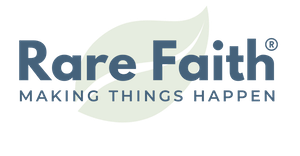
My thoughts today are on the topic of change. How to change. Why we don’t change. How to make changes that really last. Let’s explore this, shall we?
Years ago, I learned in a science class that all living things are impelled toward growth. That’s one indicator that a thing can be classified as “living”. I think deep down we all want to grow, and change, and improve different aspects of our lives – even when we are content – because a desire for growth is part of our nature as a living thing.
But change can be hard, because of…
Programs
Programs, like software on a computer, run in the background of our minds. They carry out instructions, like the programs that run self-driving cars. But most of the time, these programs running silently 24/7 are leading us to places we really don’t want to go. They aren’t fundamentally nefarious, they just do what they’re designed to do: to help us live into the images in our minds, to which WE have given the most intense energy.
That can be a problem if we’ve spent a lot of time worrying about failure, or fearing rejection, because programs dutifully steer us subconsciously to behave in ways that deliver those outcomes. We have programmed our minds through repetition and thoughts charged with (positive or negative) emotion.
But there are also programs that were established long before we were old enough to know good from bad, right from wrong. Many of these early-established programs are some of the worst kind. If we don’t identify, uninstall, quarantine, or replace these faulty programs, our destination in life will likely be a terrible disappointment.
There are programs on our mental hard drive that were uploaded by outside influences, too, and we have accepted them. Each program, when certain data input is received, directs us to think a certain way about it. That way of thinking shapes our behaviors, and our resulting circumstances are a natural byproduct of those behaviors, and the programs that shaped them.
So if we want to change our behaviors or our circumstances, we must begin with taking an inventory of, and making necessary upgrades, to our mental software.
As a marvelous computer – the most marvelous computer ever designed – your mind began receiving data input even before you were born. As you grew and continued to gather data, you didn’t know that you could choose how to think about what took place. When you didn’t know how to think about something that happened to you, you looked to your parents or other trusted models, to adopt thinking habits that helped you fit comfortably into the world in which you were born.
- If they hated money, you learned to hate money.
- If they worried about having enough, you learned to worry about having enough.
- If they got angry when things didn’t go well, you learned to get angry when things don’t go well.
It’s not their fault, and it’s not your fault; we’re all just doing the best we can to cope with life’s challenges the best way we know how. But regardless of your upbringing, the good news is that there is good to be gleaned from every kind of family environment, positive or negative. Once you discover your power to choose, your background or upbringing is no longer a determining factor in your success.
It’s time to realize that how we think is truly and ultimately our choice.
So even though our results have been a direct outcome of the way our mind processed the input it received previously (ie. our experiences, conversations, media), we can begin right now to override any program that holds us back.
It begins with understanding the process. It goes like this:
data comes in -> programs run -> triggers are tripped -> we react to the triggers -> we experience results
- Data = experiences, words we hear, other people’s behaviors, health conditions, checkbook balance, anything that can be perceived with our 5 senses.
- Programs = long-established thought patterns, or behavior conditioning,
- Triggers = an event that bugs, offends, angers, hurts, or disappoints you.
When data comes into your mind through your five senses (ie. you see a late bill, you hear your spouse criticize you, you feel your muffin-top press into your waistband), there are programs in your sub-conscious mind that are already running. And if the data input matches the memory of an experience already lived, a program kicks in and throws back the trigger to initiate a similar response to the one you experienced the first time. Not because it’s the best response, but because it is familiar, and therefore “safe”.
(After all, you didn’t die the first time, so subconsciously, it’s a safer bet than any other potential response, which – you never know – could be fatal! Or so it thinks.)
To get better results, we have some options. We can either:
- Control the data input
- Respond differently to our triggers, or
- Change our programs.
But no matter how hard we try, we can’t always control the data input. All we can control is our response to that data. But it isn’t easy to control our response when it’s initiated by a trigger thrown up by one of our long-established programs. Our reactions are often habitual, on auto-pilot, like a self-driving car that keeps going straight, even when we really want to take the next exit.
So if we can’t effectively change the data input, and if we’re not super good at choosing better responses to our triggers, that leaves programs.
As we change our programs, it no longer matters what the data input will be. It no longer matters what our triggers have been. It’s the source point where we reclaim our power, our agency. And changing our programs has a direct effect on our results, putting us squarely back in the drivers seat with full navigational control of our life.
So ask yourself this:
- How long have I been struggling with my relationships?
- How long have I dealt with financial issues?
- How long have I been feeling that way about myself?
- How long have I been addicted to _________?
With programs constantly running in the sub-conscious mind, repeated results are sadly predictable.
Would you like something to change?
I promise you this:
When a better internal program has been uploaded, better results come naturally. With better programs running, you’ll be astounded at how people’s responses to you improve. Improved health habits will feel like a natural part of you. The money will start to flow in faster than you spend it. It can all happen naturally, as you begin to improve the way you think, because of Universal Law which cannot err.
Are you 100% excited about your life just the way it is?
If not, if there are some changes you’d like to see in your environment/relationships/checkbook/health, then you no longer need to get frustrated about trying to make changes that just don’t stick. Your mind is the greatest computer ever created, and the only thing that needs to change are the programs you allow it to run.
What programs are running now?
If you’re always strapped for time or money, then you may have a sub-conscious program making sure that never changes. That is your ‘truth’ about life. To you, that is just the way life is. A new truth will never take hold until your mind has been scanned for the ‘virus’ that infected your belief system. You’ve got to turn it off, uninstall it, or at least quarantine it. And then most importantly, turn on a program that supports the truth you choose: I have all that I need. I have plenty of time and money to do all that God put me here to do.
No matter how successful you are, check for programs that aren’t serving you.
I thought I had life pretty well figured out. After learning the principles and applying them consciously for about 6 years, I was happy with my results. I felt like I had all the understanding and tools I needed to make other changes, as I continued to discover areas where I could improve. However, a trusted mentor talked me into attending another training, where I discovered one major program that was running my life, which had not been noticed on anything more than a superficial level.
So, even though I was feeling pleased with my results, my mind opened up to see a way in which it could be infinitely better, as I consciously recognized the program, and took care of it the way I was taught. As the old saying goes: Pigs don’t know pigs stink. Sometimes we have to submit ourselves to an experience before we will recognize additional areas where we can improve. The rewards for this kind of continued self-exploration are amazing.
So I’d like to invite you to attend a seminar that will help you do just that. It costs $10,000.
bam –
Bam –
BAM!
Did you recognize any of your programs firing away when you saw the price: $10,000?
Maybe a program said:
- ‘I can’t afford that, no matter how good it is.’ Or…
- ‘What a scam.’ Or…
- ‘She’s just trying to make a buck off of me.’ Or…
- ‘Pshh. That’s nothing.’ Or…
- ‘I’d have to go into debt if I did that.’ Or…
- ‘No seminar could be worth that kind of money.’
Did any of these pop up for you? Or did it trigger a different thought altogether?
Maybe it said:
- Wow, sounds powerful. I’m going to find a way to be there. There’s got to be a way.
I challenge you to take a look at how you responded to the simple data input: the program costs $10,000.
Can you think back to what happened in your life to create the program that fired when you saw the price?
If you don’t remember, you could probably find out, if you allow yourself to experience a(nother) life-changing event or training.
Did you notice the response that said, ‘Pshh. That’s a drop in the bucket’? There are actually people who think that way, and who would refuse to go, because if it’s that cheap, it must not be very valuable.
Isn’t it interesting how one statement – one bit of data input – triggers a different program in every individual who sees it. The data itself is just dots on a paper, and has no inherent meaning, until you assign meaning to it. But most of the time we don’t realize that we’re the ones who assigned meaning. It was so automatic, so quick.
Side note:
Be careful not to judge a person’s thinking by their outward circumstances
Even if a person is not wealthy, having a healthy wealth-consciousness will put him or her in a state, which, like a magnet, will attract to them every event, person, and circumstance they will need for it to eventually come true in real life. It’s not where you are that matters, it’s where you’re pointed, and the way you think determines the direction you’re going.
So don’t be automatically impressed by a person who appears to have it all. You don’t know how they think, or whether they might be pointed toward disaster. By the same token, don’t be automatically unimpressed by a person who appears to have nothing. They may be pointed in a very admirable direction, poised to enjoy greater success than the one who currently appears to have it all.
I challenge YOU to behave as though you already have the quality you want. Think: how would a wise and wealthy person respond to an opportunity to learn something new?
When people think, ‘I can’t afford that,’ they’ve already shut down the part of them that picks up on the idea (which does exist) that allows them to invest in themselves without jeopardizing other financial obligations.
If you thought, ‘I’d have to go into debt for that,’ then although you may attend the event, you’ll predictably incur debt to do it. Did you know that it doesn’t have to be that way? Don’t tell me you’re on a fixed income. That’s an excuse. You can attend it, even if you don’t have the money right now, and you could attend it by going into debt, but you don’t have to. You can do it even without going into debt.
“But where will the money come from??”
Wherever it is NOW. Don’t shut out the solution simply by deciding there isn’t one!
Instead of freaking out that you don’t have $10,000 for a seminar that will help you change your life, take a deep breath and see yourself feeling the joy and experiencing major breakthroughs, and you will put your mind in tune with the ‘way’ to get yourself there, if you’ll relax and allow yourself to move forward ‘as though’. Make the commitment to be there. Expect to find a way. Don’t wait until all the lights are green before you pull out of your driveway. You’ll hit some red lights, but don’t stay home just because of a few red lights. Your solution already exists, and you’ll likely find it at the end of the things you can do right now.
The person who hopes for, and expects to find a way is the one who finds the way. People who allow the program ‘I can’t afford it’ to determine their behavior are the people who remain trapped.
Now I know, I know. A seminar won’t change your life; you will. But a seminar can provide you with the environment and the support to get it done.
And no, I’m not offering a $10,000 seminar. It was just an example.
But there is a seminar that I do highly recommend:
Genius Bootcamp, my baby.
At this event you get 3 days immersed in the best of the best of what I’ve learned and gathered over the last 20+ years. (I’ll be teaching my LAST Genius Bootcamp in June 2021. Join me near Phoenix, Arizona for a memorable, life-changing experience! Click here to learn more.)
So take a step. Let me help you change your programs. If you choose not to attend Genius Bootcamp with me, at least read the book that inspired it. It’s a free download: Portal to Genius.
Oh, there is so much abundance waiting for you, in ALL of the areas of your life! Let’s go claim it!
- Update on Flip Chicks Founder - January 18, 2025
- The Miracle Cycle - January 18, 2025
- Connor’s Jackrabbit - January 18, 2025

















6 Responses
A challenging piece. Thank you very much.
This is awesomeness. I really enjoy and appreciate your mentorship, you’re the best.
I celebrate you more
Thanks for this, Leslie. I love the way you teach these principles. Thanks for daring to shine.
Thanks Resha!
Good stuff, Leslie! Love who you are what you share! Thanks for being a bright light! Marnie
Thanks Marnie! Great to hear from you!